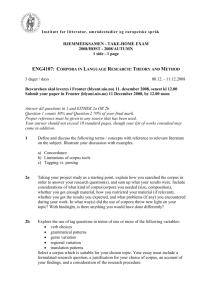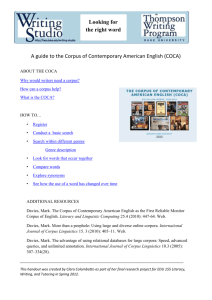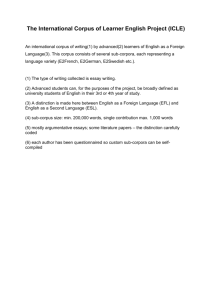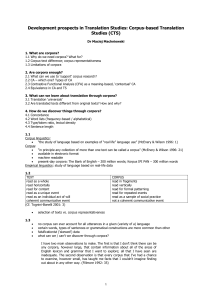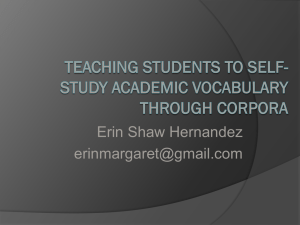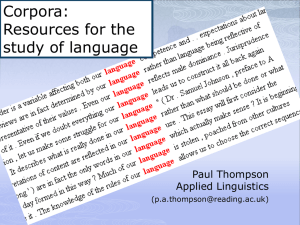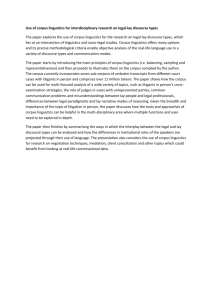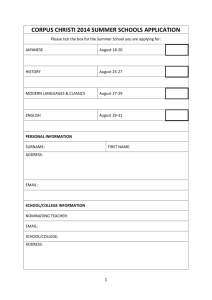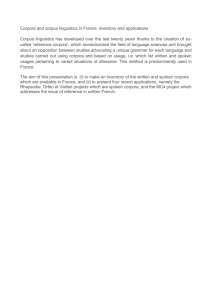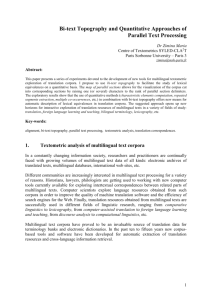Mandative constructions in English and their equivalents in French
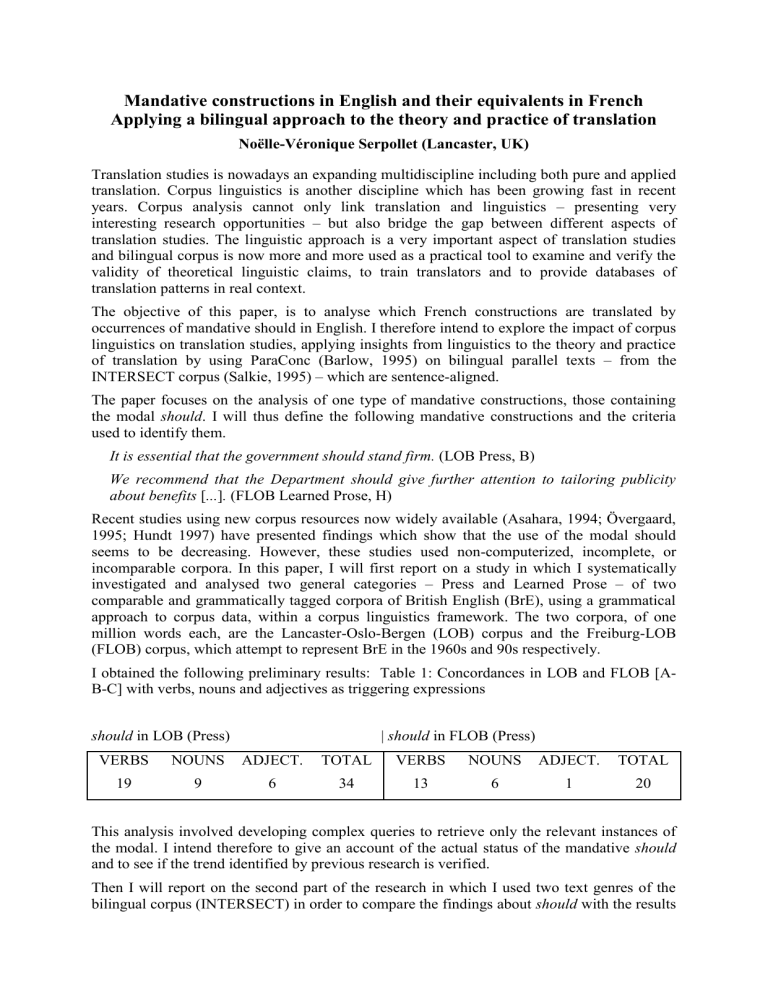
Mandative constructions in English and their equivalents in French
Applying a bilingual approach to the theory and practice of translation
Noëlle-Véronique Serpollet (Lancaster, UK)
Translation studies is nowadays an expanding multidiscipline including both pure and applied translation. Corpus linguistics is another discipline which has been growing fast in recent years. Corpus analysis cannot only link translation and linguistics – presenting very interesting research opportunities – but also bridge the gap between different aspects of translation studies. The linguistic approach is a very important aspect of translation studies and bilingual corpus is now more and more used as a practical tool to examine and verify the validity of theoretical linguistic claims, to train translators and to provide databases of translation patterns in real context.
The objective of this paper, is to analyse which French constructions are translated by occurrences of mandative should in English. I therefore intend to explore the impact of corpus linguistics on translation studies, applying insights from linguistics to the theory and practice of translation by using ParaConc (Barlow, 1995) on bilingual parallel texts – from the
INTERSECT corpus (Salkie, 1995) – which are sentence-aligned.
The paper focuses on the analysis of one type of mandative constructions, those containing the modal should . I will thus define the following mandative constructions and the criteria used to identify them.
It is essential that the government should stand firm. (LOB Press, B)
We recommend that the Department should give further attention to tailoring publicity about benefits [ ...
] . (FLOB Learned Prose, H)
Recent studies using new corpus resources now widely available (Asahara, 1994; Övergaard,
1995; Hundt 1997) have presented findings which show that the use of the modal should seems to be decreasing. However, these studies used non-computerized, incomplete, or incomparable corpora. In this paper, I will first report on a study in which I systematically investigated and analysed two general categories – Press and Learned Prose – of two comparable and grammatically tagged corpora of British English (BrE), using a grammatical approach to corpus data, within a corpus linguistics framework. The two corpora, of one million words each, are the Lancaster-Oslo-Bergen (LOB) corpus and the Freiburg-LOB
(FLOB) corpus, which attempt to represent BrE in the 1960s and 90s respectively.
I obtained the following preliminary results: Table 1: Concordances in LOB and FLOB [A-
B-C] with verbs, nouns and adjectives as triggering expressions should in LOB (Press) | should in FLOB (Press)
VERBS NOUNS ADJECT. TOTAL VERBS NOUNS ADJECT. TOTAL
19 9 6 34 13 6 1 20
This analysis involved developing complex queries to retrieve only the relevant instances of the modal. I intend therefore to give an account of the actual status of the mandative should and to see if the trend identified by previous research is verified.
Then I will report on the second part of the research in which I used two text genres of the bilingual corpus (INTERSECT) in order to compare the findings about should with the results
from my reference corpus FLOB, and also to identify what types of constructions in French are translated by the mandative use of the modal. Finally I will discuss the results of the bilingual study and will conclude by indicating the usefulness of the development of a direct translation database of expressions in French and their equivalent in English. I intend to show that this research can make a significant contribution to translation studies but also to the improvement of learning process, knowledge acquisition and teaching methods applied to grammatical concepts.
Bibliography
ASAHARA, K., 1994, “English Present Subjunctive in Subordinate That-Clauses,”
Kasumigaoka Review , 1-30.
BARLOW, M., 1995, “ParaConc : a Concordancer for parallel texts,”
Computer and Text , 10,
14-16, Oxford, OPU.
HUNDT, M., 1997, “It is important that this study (should) be based on the analysis of parallel corpora: On the use of mandative subjunctive in four major varieties of English,” in LINDQUIST, H. et al. (eds.), The Major Varieties of English , Papers from MAVEN
97, Naxjo University.
JOHANSSON, S. and NORHEIM, E. H., 1988, “The Subjunctive in British and American
English,”
ICAME Journal 12, 27-36.
ÖVERGAARD, G., 1995,
The Mandative Subjunctive in American and British English in the
20th Century , Stockholm, Almqvist & Wiksell International, Acta Universitatis
Upsaliensis, Studia Anglistica Upsaliensia, Vol. 94.
QUIRK, R., Greenbaum, S., LEECH, G. N., and SVARTVIK, J., 1985, A Comprehensive
Grammar of the English Language , London, Longman.
SALKIE, R., 1995, “INTERSECT: a parallel corpus project at Brighton University,”
Computer and Texts , 9, 4-5, Oxford, OPU.
